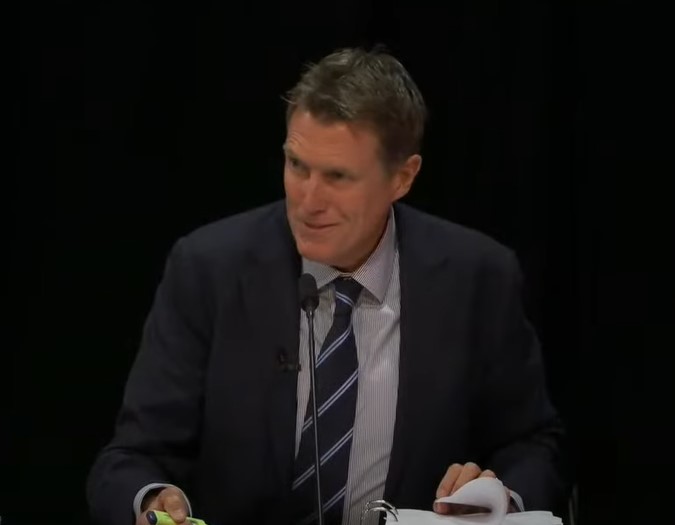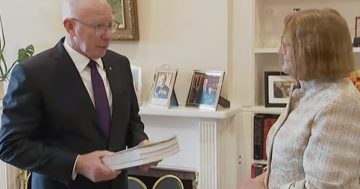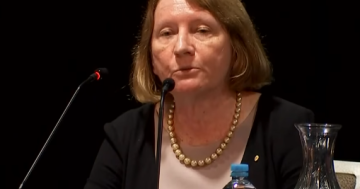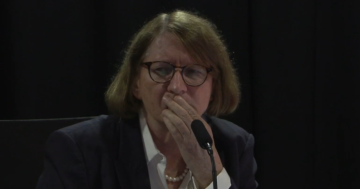
Christian Porter at the Robodebt Royal Commission on 2 February 2023. Image: Screenshot.
Former Coalition minister Christian Porter has admitted some responsibility for the failures of the illegal Robodebt scheme.
He told the Robodebt Royal Commission that he was at times quite frustrated by Robodebt, but he didn’t take the proper steps to ensure it was legal.
The Robodebt scheme was a method of automated debt assessment and recovery for Centrelink payment compliance that was put in place in 2016.
It erroneously calculated overpayments by data-matching Centrelink records with average income data from the Australian Taxation Office. It was the cause of widespread condemnation and significant mental health harm for many debt recipients.
It was scrapped in 2020, with then-prime minister Scott Morrison promising that the government would repay wrongly recovered debts.
Asked by Commissioner Catherine Holmes on Thursday (2 February) if he took any responsibility for failures in the scheme, the former minister said he did.
“I do. And I look back on this and I see myself through the correspondence getting quite close at points to taking the next step of inquiry, and I didn’t do that,” Mr Porter said.
“I wish now that I had.”
Mr Porter was Social Services minister between 2015 and 2017 and also acted for Alan Tudge who was then Human Services minister.
On Wednesday, Mr Tudge told the commission that he took no responsibility for the scheme being illegal, insisting the fault lay with departmental bosses.
Mr Porter said he was not aware of the concerns over Robodebt’s legality and never saw any legal advice during his time as minister.
But he did seek assurances that it was legislatively sound.
“I was unaware of all the comings and goings of this issue,” he said.
“I firmly had in my mind that I put this question [about sound legislation] to people and that they’d responded affirmatively.
“I can’t recall who, but a departmental person assured me, I can’t recall if it was DHS or DSS, but someone did. It happened and we moved on.”
The former minister also admitted that he gave incorrect information in the form of ‘talking points’ to the media in a bid to defend the scheme.
“There were lots of things in those talking points that through this process, and information from my lawyers provided me from this process, I now understand were inaccurate or untrue,” Mr Porter said.
“I was frustrated because I’d gone out and undertaken earlier media based on what were talking points and oral conversations with DHS people or relayed to me.
“The level of confidence they had was extraordinarily high.
“And the early media that I did was relaying those talking points and the confidence levels.”
Mr Porter said he placed “enormous reliance” on the information given him, but feels he was let down by bureaucrats.
“I felt that I’d been disserved in terms of the information that I’d been given to go out and do large national media on the issue,” he said.
“As we went further into interrogating what was actually occurring, it seemed to my office and I that the processes hadn’t been very well designed.”




















